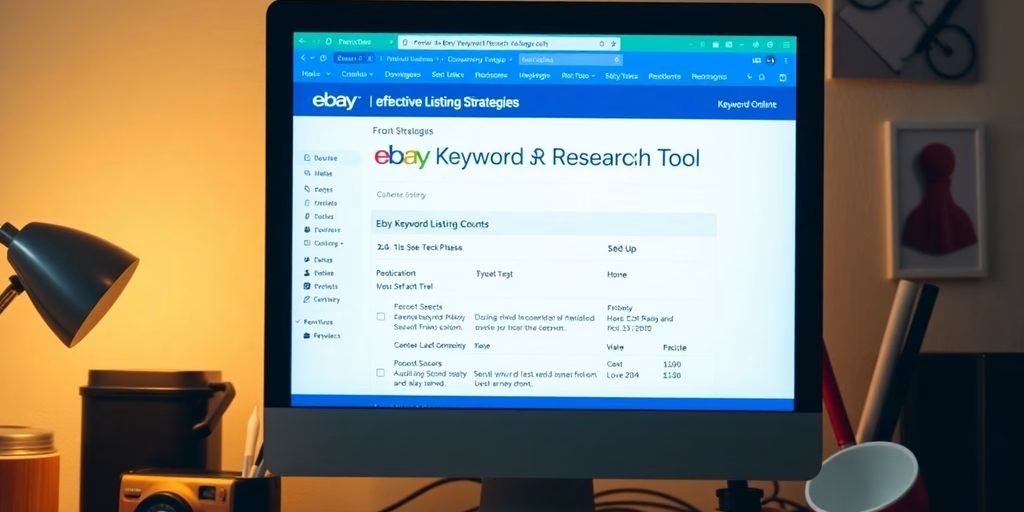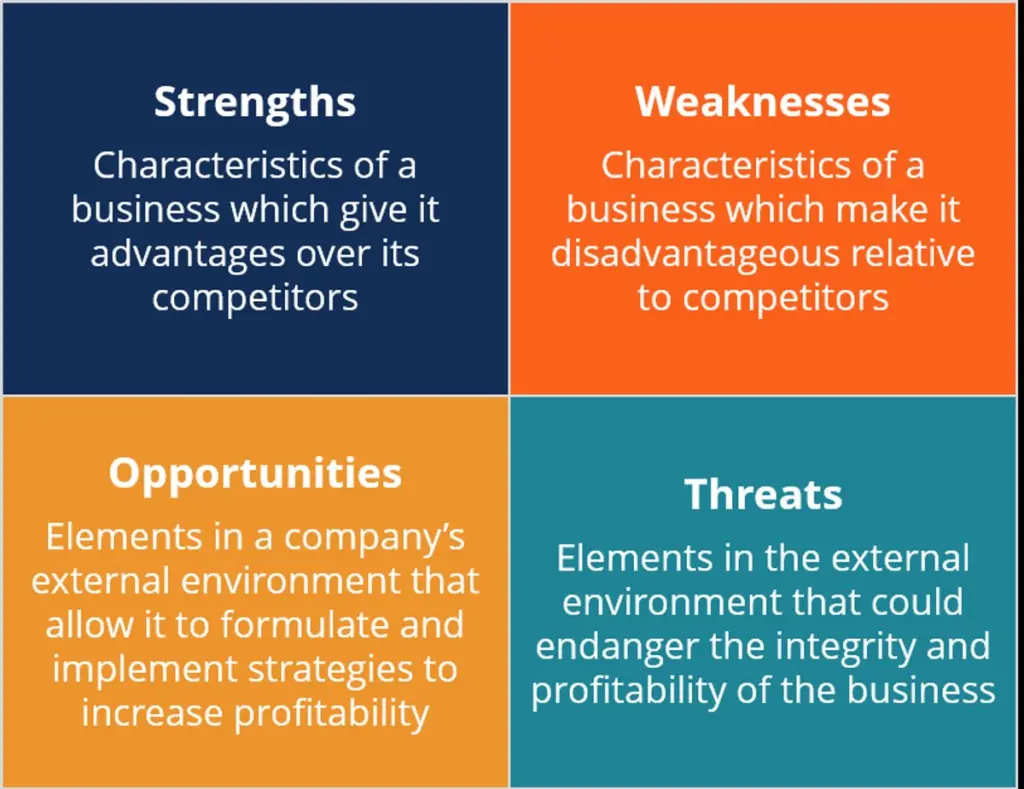The B2B online market is changing fast, and businesses need to keep up. It’s not just about selling products anymore; it’s about understanding the market, the customers, and how to stand out from the crowd. In this article, we’ll explore some strategies that can help businesses thrive in this digital landscape. From marketing tricks to building strong relationships, there’s a lot to consider.
B2B Online Markets Key Takeaways
- Stay updated on market trends to stay ahead of competitors.
- Use content marketing and social media to connect with customers.
- Invest in technology to streamline operations and improve efficiency.
- Build strong relationships through personalised service and feedback.
- Keep an eye on regulations to avoid penalties and ensure compliance.
Understanding the Dynamics of the B2B Online Market

Market Trends and Insights
In the fast-paced world of B2B online markets, understanding current trends is like having a map in a maze. Businesses need to be aware of shifting dynamics to stay ahead. Adapting to these changes is key to maintaining a competitive edge. Some of the major trends include the rise of digital marketplaces, increased focus on sustainability, and the integration of AI technologies. Companies are now more than ever investing in digital platforms to streamline operations and enhance customer experience.
- Digital marketplaces are becoming the norm, offering businesses a platform to reach a broader audience.
- Sustainability is no longer optional; it’s becoming a core part of business strategies.
- AI technologies are being integrated into various processes, from customer service to supply chain management.
As the B2B online market evolves, businesses that can quickly adapt to new trends and technologies will likely find success.
Key Players and Competitors
The B2B market is filled with key players who set the pace for others. These companies often lead in innovation and customer service. Understanding who these players are and what they offer can provide insights into market expectations and standards.
- Established giants like Amazon Business and Alibaba dominate the scene with their vast resources and extensive networks.
- Niche players focus on specific industries, offering tailored solutions that cater to unique business needs.
- New entrants continue to disrupt the market with innovative solutions and agile methodologies.
Consumer Behaviour in B2B Transactions
Consumer behaviour in B2B transactions is different from B2C, with a focus on rational decision-making and long-term relationships. Businesses are looking for partners who can offer reliability and consistency.
- Decision-making processes often involve multiple stakeholders, requiring a consensus before finalising purchases.
- There is a strong emphasis on building long-term relationships, as businesses prefer to work with trusted partners.
- Price is important, but factors like service quality, product reliability, and post-purchase support are equally critical.
Understanding these dynamics helps businesses tailor their marketing strategies effectively, ensuring they meet the needs and expectations of their target audience. By mastering customer analysis, companies can better navigate this complex landscape and achieve sustained growth.
Developing Effective Digital Marketing Strategies
Content Marketing Approaches
Content marketing is all about creating and sharing valuable content to attract and engage a specific audience. It’s not just about selling; it’s about providing information that your audience finds useful. For B2B markets, this often means producing in-depth articles, whitepapers, and case studies that address industry challenges or showcase success stories. Content marketing is a powerful tool because it builds trust and positions your brand as a thought leader.
Here are some key strategies for effective content marketing:
- Know Your Audience: Understand who they are, what they need, and how they consume information.
- Create Quality Content: Focus on producing content that is informative, accurate, and engaging.
- Distribute Widely: Use various channels to get your content in front of your audience, like email newsletters, social media, and industry forums.
For more on effective content strategies, check out CWORKS’ comprehensive digital marketing services.
Utilising Social Media Platforms
Social media is a vital part of any digital marketing strategy. It’s not just for B2C; B2B companies can also benefit greatly. Platforms like LinkedIn, Twitter, and even Facebook are excellent for reaching out to potential clients and partners. The key is to use these platforms to build relationships and engage in meaningful conversations.
Consider these tips for social media success:
- Choose the Right Platforms: Focus on platforms where your audience is most active.
- Engage Regularly: Post consistently and interact with your audience to keep them engaged.
- Monitor and Adapt: Use analytics to track performance and adjust your strategy as needed.
Learn more about innovative marketing strategies that leverage social media engagement.
Search Engine Optimisation Techniques
SEO is crucial for getting your content seen. It’s about making sure your website and content appear in search engine results when potential clients are looking for solutions you offer. Good SEO involves keyword research, on-page optimisation, and building quality backlinks.
Here’s a quick SEO checklist:
- Keyword Research: Identify the terms your audience is searching for.
- On-Page Optimisation: Ensure your website is structured well and content is optimised for search engines.
- Link Building: Acquire links from reputable sites to improve your site’s authority.
For a deeper dive into B2B digital marketing strategies, explore essential strategies for SEO and more.
Leveraging Technology for Competitive Advantage

E-commerce Platforms and Tools
In today’s B2B landscape, selecting the right e-commerce platform can set the stage for success. Businesses need systems that are flexible and can grow with them. Platforms like Shopify and Magento offer customisation options that cater to specific business needs. Choosing the right platform is like choosing the foundation for your house; it needs to be solid and reliable.
- Scalability: Ensure your platform can handle increased traffic and transactions as your business grows.
- Integration: Look for tools that easily connect with existing systems, such as CRM and ERP solutions.
- User Experience: A straightforward interface can make or break customer satisfaction.
Data Analytics for Decision Making
Data is the new oil, and in the B2B sector, it’s all about how you refine it. Companies are using analytics to gain insights into customer behaviour, market trends, and operational efficiency. Implementing data-driven strategies can lead to smarter decisions and better outcomes.
Understanding data isn’t just about numbers. It’s about recognising patterns and predicting future behaviours.
Automation in B2B Operations
Automation is reshaping how businesses operate, from inventory management to customer service. By automating routine tasks, companies can focus on what truly matters—innovation and customer engagement. Automation can reduce errors and increase efficiency, making it a game-changer for B2B operations.
- Inventory Management: Automate stock levels to avoid overstocking or running out.
- Customer Service: Use chatbots to handle basic inquiries, freeing up human resources for complex issues.
- Order Processing: Streamline order fulfilment to enhance speed and accuracy.
In the future, investing in technologies like cloud-based systems, AI, and blockchain will be crucial for businesses to scale and adapt in the rapidly evolving B2B e-commerce market.
Building Strong Customer Relationships

Personalisation and Customisation
In the B2B world, personalisation isn’t just a buzzword; it’s a necessity. Businesses crave solutions tailored to their specific needs. Understanding your client’s unique challenges can set your service apart. Think about it — a generic approach won’t cut it. Instead, dive into their industry specifics and tweak your offerings to fit them like a glove.
- Know your client’s industry inside out.
- Offer solutions that are tailor-made.
- Be flexible in your approach.
Customer Service Excellence
Providing top-notch customer service is more than just answering queries. It’s about being there when your clients need you, offering solutions that work, and doing it all with a smile. A happy client is a loyal client, and loyalty in B2B can mean long-term contracts and ongoing partnerships.
“Great service is remembered long after the price is forgotten.”
Consider the following steps to elevate your service game:
- Be proactive in addressing potential issues.
- Respond promptly and effectively to client inquiries.
- Regularly seek feedback to improve service quality.
Feedback and Continuous Improvement
Feedback isn’t just about finding out what went wrong; it’s an opportunity to learn and grow. Regularly collecting feedback from your clients can offer insights into what you’re doing right and where there’s room for improvement. Implementing changes based on this feedback shows clients that you value their opinion and are committed to continuous improvement.
- Conduct regular surveys and interviews.
- Analyse feedback to identify trends.
- Implement changes and communicate them to your clients.
In the ever-evolving B2B market, building strong relationships isn’t just about sharing valuable content or having the best product. It’s about creating a connection, understanding your client’s needs, and being a partner they can rely on. For more insights, explore six effective B2B marketing strategies that can help you build authentic connections and foster long-lasting partnerships.
Navigating Regulatory Challenges

Understanding Compliance Requirements
In the B2B online market, understanding compliance can be a bit like trying to solve a puzzle with missing pieces. Regulations differ from one region to another, and staying on top of these changes is a full-time job. Businesses must ensure that they are not only aware of these regulations but also actively integrating them into their operations. Ignoring compliance can lead to hefty fines and even damage to a company’s reputation. It’s like trying to play a game without knowing the rules—you’re bound to get into trouble sooner or later.
Data Protection and Privacy Issues
Data protection is a hot topic these days, especially with the rise of digital transactions. Businesses need to make sure that they are protecting their customer’s data as if it were their own. This means implementing robust security measures and staying updated with the latest in data protection laws. It’s not just about avoiding penalties; it’s about maintaining trust with your clients. When customers feel that their data is safe, they’re more likely to continue doing business with you.
International Trade Regulations
For businesses operating on a global scale, international trade regulations can be a real headache. Each country has its own set of rules, and keeping track of them all can be daunting. It’s not just about knowing the rules; it’s about understanding how they apply to your business. Companies must be diligent in their efforts to comply with these regulations to avoid any disruptions in their operations. Cross-border taxation is a major challenge, affecting how businesses manage global payments and compliance. It’s a complex web, but with the right strategies, businesses can navigate these waters successfully.
Measuring Success in the B2B Online Market
Understanding how well your business is doing in the B2B online market can be a bit tricky, but it’s super important. You don’t want to just guess if things are going well. You need to know for sure by looking at the right numbers and facts.
Key Performance Indicators
When you’re trying to figure out how well your business is doing, Key Performance Indicators (KPIs) are the way to go. These are the numbers that tell you if you’re on the right track. Here’s a simple list of KPIs you might want to keep an eye on:
- Sales Revenue: This is how much money you’re making from sales. If this number is going up, that’s usually a good sign.
- Customer Acquisition Cost (CAC): This tells you how much it costs to get a new customer. If this is too high, you might need to rethink your strategy.
- Customer Lifetime Value (CLV): This is the total amount of money a customer is expected to spend with you over time. A higher number is better here.
Analysing Sales Data
Diving into your sales data can show you what’s working and what’s not. You want to look at trends over time, not just one-off numbers. For instance, if you notice a sudden drop in sales, it might be time to dig deeper and see what’s going on.
Sometimes, the numbers might tell a story you weren’t expecting. Maybe a product you thought was a hit isn’t selling as well as you thought. Or perhaps there’s a market you haven’t tapped into yet.
Customer Retention Metrics
Keeping customers coming back is just as important as getting new ones. Here are some metrics to help you see how well you’re doing:
- Retention Rate: This shows how many customers keep coming back to buy from you again. A high retention rate is a good sign.
- Churn Rate: This is the opposite of retention rate. It tells you how many customers are leaving. You want this number to be low.
- Net Promoter Score (NPS): This measures how likely your customers are to recommend you to others. A higher score means happier customers.
Understanding these metrics can help you make better decisions and improve your business. And remember, it’s not just about the numbers. It’s about what those numbers mean for your business and how you can use them to grow. For more insights on how to master the sales funnel in Shopify and improve retention, consider exploring comprehensive guides that focus on post-purchase engagement and measuring retention success.
Future Trends Shaping the B2B Online Market
Emerging Technologies
The B2B online market is constantly evolving, with emerging technologies paving the way for new opportunities. Artificial Intelligence (AI) is transforming how businesses operate, from automating customer service to analysing vast amounts of data for better decision-making. Blockchain technology is also gaining traction, providing secure and transparent transactions that build trust among business partners. Meanwhile, the Internet of Things (IoT) is connecting devices and systems, creating more efficient and responsive supply chains.
Sustainability and Ethical Practises
Sustainability is not just a buzzword; it’s becoming a core part of business strategies. Companies are increasingly focusing on reducing their carbon footprint and adopting ethical practises to meet the demands of environmentally conscious consumers. This shift is not only about compliance but also about gaining a competitive edge. Businesses are now expected to be transparent about their sustainability efforts, which can significantly impact their brand reputation and customer loyalty.
Globalisation and Market Expansion
The B2B online market is no longer confined by geographical boundaries. With digital platforms, businesses can easily reach a global audience. This expansion is driving competition and innovation, as companies strive to offer unique products and services to a diverse customer base. However, entering new markets requires a deep understanding of local cultures, regulations, and consumer behaviours, which can be both a challenge and an opportunity for growth.
The future of the B2B online market is not just about adapting to new technologies or expanding into new markets. It’s about creating a balance between innovation and sustainability, ensuring businesses not only survive but thrive in a rapidly changing world.
The B2B online market is changing fast, and it’s important to keep up with the latest trends. Businesses are now using new technologies like artificial intelligence and big data to improve their services. This means they can understand their customers better and offer what they really want. If you want to stay ahead in this competitive world, visit our website to learn more about how we can help you succeed!
Conclusion
In summary, succeeding in the B2B online market requires a mix of practical strategies and a willingness to adapt. Businesses need to focus on building strong relationships with their clients, understanding their needs, and being responsive to changes in the market. It’s also important to invest in the right technology and tools that can help streamline operations and improve customer interactions. By staying informed about industry trends and being open to new ideas, companies can position themselves for long-term success. Ultimately, the key is to remain flexible and ready to adjust strategies as the market evolves.
Frequently Asked Questions
What is the B2B online market?
The B2B online market is where businesses sell products or services to other businesses using the internet. It’s different from B2C, where businesses sell directly to consumers.
How can I improve my digital marketing for B2B online market?
To boost your B2B digital marketing, focus on creating helpful content, use social media to connect with others, and make sure your website shows up on search engines.
What technology should I use in B2B online market?
For B2B, using e-commerce platforms can help you sell online. Data analytics can help you understand your customers better, and automation tools can make your work easier.
Why is customer relationship important in B2B online market?
Building good relationships with customers is key in B2B. It helps in personalising services, providing great customer support, and getting feedback to improve.
What are some rules I need to follow in B2B online market?
In B2B, it’s important to understand the rules about compliance, data privacy, and international trade so you can avoid legal issues.
How do I know if my B2B online market efforts are successful?
To measure success in B2B, look at key performance indicators like sales numbers, customer retention rates, and how well you’re doing compared to your goals.

![A Comprehensive Guide to Google Play Console Pricing [n8n]](https://cworks.id/wp-content/uploads/2025/09/cover-image-24622.avif)
![Understanding the Google Play Console Price: What Developers Need to Know [arvow]](https://cworks.id/wp-content/uploads/2025/05/4755037cthumbnail.avif)






































































































